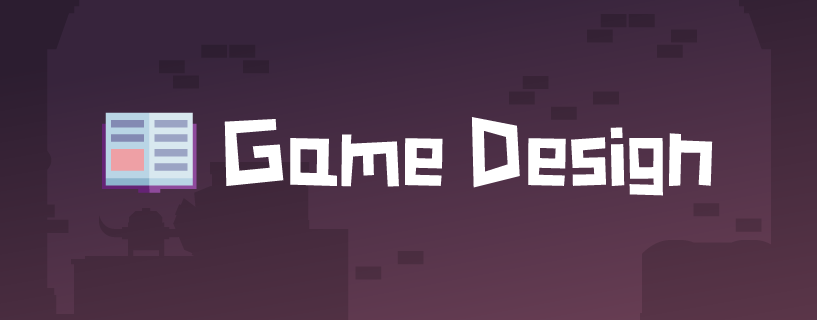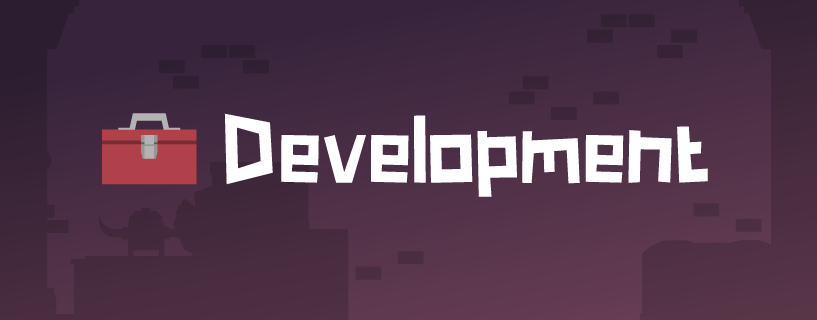
An Essay On RPG Battle Mechanics Redundancy: Intensity vs Expression
When I first came up with the idea for my hardcore tactical RPG loot game over 8 years ago, my goal was to take every cool core feature from every RPG I loved and cram it into a super awesome battle system. In addition to the 20,000+ hours I’ve spent playing RPG’s I also have now spent thousands of hours dissecting them. Reading through all Dungeons and Dragons Books, pouring over skills and perks in dozens of RPG’s like Pillars of Eternity, Diablo, and even looking deep into card games that have cool unique effects like Hearthstone and Magic: The Gathering. And of course diving deep into tactical RPG’s like Final Fantasy Tactics and the Disgaea series.
It wasn’t until I started to design my own RPG I realized how shallow RPG battle mechanics can be and how hard it is to come up with unique new gameplay elements. These are my personal thoughts I’ve had over the years as I’ve been developing my game and I welcome your input and potentially differing viewpoint, so feel free to comment and express how you feel.
The problem, as I see it, with variety in an RPG has to do with the ultimate end goal of most battles. There are enemies, you need to kill them. So because you need to kill the enemies there is generally a high priority approach: deal as much damage as possible. And there’s the rub, dealing the most damage as possible can be a lot less interesting than I expected.
When your goal is to kill the enemy, your objective becomes dealing as much damage as possible. Sure there might be nuances (like timing your attack so he doesn’t counter or something), but the general principal is you want to maximize damage output (you also want to minimize damage taken but that doesn’t ultimately win you the battle, to win you need to kill). And because you want to maximize output a lot of “interesting” mechanics can be rendered obsolete because they don’t deal optimal damage. For example, say an enemy is weak to fire, the choice to use fire becomes the obvious and critical choice. This also makes the decision to use a fire attack simple and while there might be other options available, they really aren’t viable options. As a result I find many RPG battles tend lack the depth and decision making because the most damaging choice is almost always the obvious and required one. For the sake of argument I am not going to deal with dexterity and timing mechanics (like Dark Souls for example) as I am more interested in the tactics layer (and movement in games like Dark Souls adds a different layer of gameplay that can make otherwise redundant moves no longer redundant).
You might be thinking that different enemies have different damage type weaknesses gives the game variety — and it does, but it’s very shallow variety in my opinion. If an enemy is weak to a damage type, then you will just use that damage type. You aren’t causing the player to think or solve a problem differently, you are merely telling the player that to do max damage to this enemy, use a skill that does X damage type. And this is because you are making the player worry about intensity instead of expression.
As I’ve come to understand it, there really are 2 ways mechanics manifest in a game. There is the Intensity of the action, and the Expression of an action. Intensity is exactly that, how intense the actual action your taking is. If you are damaging an enemy, intensity is how much damage you are doing. If you are healing, intensity is how much you are healing. Intensity can be fun and entertaining, but it can also be shallow and uninteresting without expression. Expression is the actual way an action manifests in a game. This can be different on a per game basis, but the core idea is that Expression is how the actual action occurs and what it affects.
For example, in Zelda: Breathe of the Wild, you can freeze objects in time. Freezing an object in time is an expression mechanic. You can also hit objects with a weapon and this does damage. How the weapon swings (on a per weapon basis) is an expression, and how much damage is does is intensity. But one of the things that makes Breathe of the Wild so great is the variety of its expression because of its emergent expressive mechanics. For example, if you freeze a boulder in time and then hit it a number of times with a weapon, you charge it with energy and when it unfreezes the energy you build up releases and it launch’s the boulder. This is combination of mechanics represents layered expression which I think is the pinnacle of game design. This allows the designers to create interesting problems for the player to solve that don’t just rely on doing the most damage. The more interesting and combinatorial ways you can create expression mechanics in a game, the better and more interesting it will be to the player. The breadth and depth of these mechanics is a topic for another discussion.
I think many RPG’s rely too heavily on intensity and lack a lot of expression when it comes to their battle mechanics. That’s not to say any particular game is bad (as there are many factors which make a game great like Story, art, and sound), but when speaking strictly about battle mechanics, I think many RPG games come up short.
Let’s take a look at the common stats in an RPG and remove the redundancy as it pertains to creating an RPG based battle system focused only on unique expression:
Strength: Physical Damage
Dexterity: Accuracy
Intelligence: Magic Damage
Charisma: Personality
Endurance: Health/Defense
These are the general stats a typical RPG has and at first glance it might seem like there’s a lot of build variation and customization. But after spending many hours trying to create interesting game mechanics around these stats I’ve found how limited this core set of stats can be.
Let’s take a look at Strength vs Intelligence. They are really the same stat: damage intensity. If you are a Wizard you will generally max intelligence and if you are a Fighter you will maximize your Strength. It’s not that interesting having both of these stats because it’s really just the same stat. Pillars of Eternity did something interesting with this stat when they used “Might” to represent all damage, and I personally liked that approach. In terms of redundancy, these two stats can be merged into one. For the sake of argument I will call this damage in the reduced list.
Dexterity is one of my most hated stats (as both a player and designer). Personally, I don’t like miss or chance mechanics in an RPG. All accuracy does is (sporadically) curb your damage over time. So really it’s just a random throttle on your damage, so it’s a redundant intensity stat too. Yes, you could have some equipment restricted to requiring this stat, but restricting gameplay based on stats promotes less variety not more. As it pertains to redundancy, this stat can be removed all together.
Charisma for me has never been a fun stat to focus on. Most RPG’s prioritize battle skills over social problem solving. This is too bad because this is one of the few more unique stats that can allow for interesting solutions. However, many games have “roll for success” when it comes to charisma mechanics and far too often it’s an exercise in save scumming tolerance. Because charisma often boils down to non-battle based mechanics and I want to look strictly at battle mechanics, I will remove this stat.
Endurance is how much damage you can take before you die. An important stat, but people generally want to play offensively not defensively. However this is unique and important.
Revisiting this list and stripping it down to its purest form we’re left with:
Damage: How much damage your attacks do
Endurance: How much damage you can take before dying
Yup. That’s really what any game boils down to. This makes me all the more amazed at how varied and diverse some RPG’s can be. But it also makes me realize how important expression is. Expression is what makes dealing (and avoiding) damage interesting. Expression is how you let the player invent solutions by layering mechanics together. Expression is how you get variety and increase engagement. Expression is what makes a game worth exploring and mastering.
Games like Hearthstone and Magic: The Gathering are not RPG’s but they do have interesting “battle mechanics”. I find the expression of a card game like these can be more interesting than your standard JRPG battle and I’ve always wanted to blend the mechanics of a card game battle with that of RPG with a party system. In fact my game draws direct inspiration from these card mechanics because I loved how each deck and game can play out differently, even with the same cards. I wanted to get this variety working with tactical RPG style battles and I continue even now to hone and refine my battle system to maximize its expressiveness.
These are my thoughts, but I’d love to hear your thoughts as either a gamer or a developer. What do you think are the core pillars of an RPG battle system. What are mechanics you’ve loved or hate?
